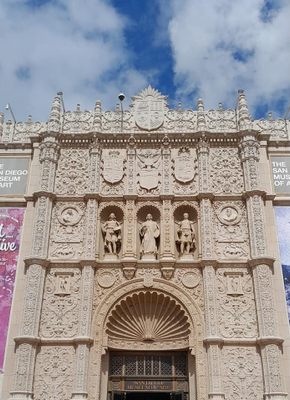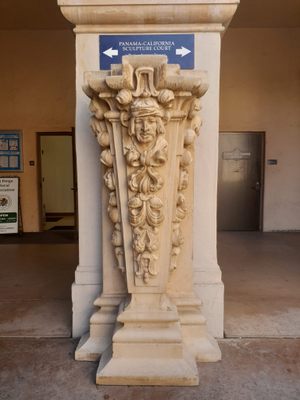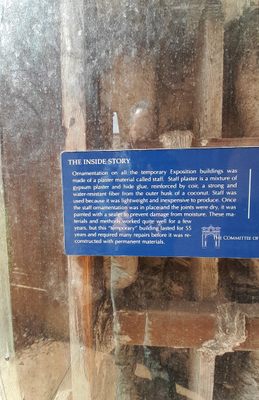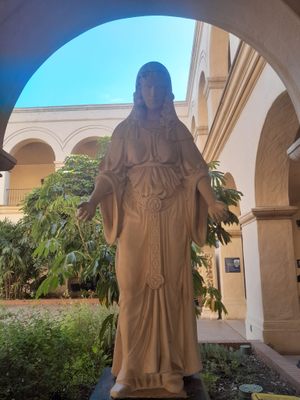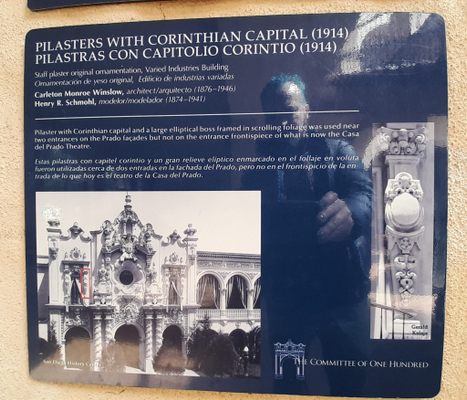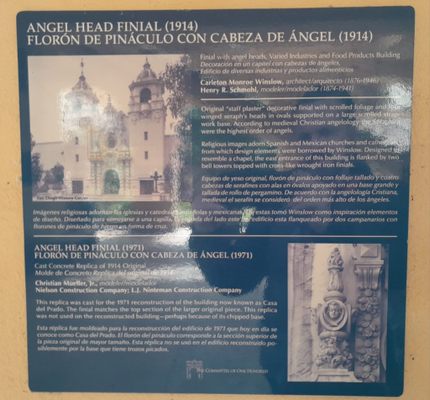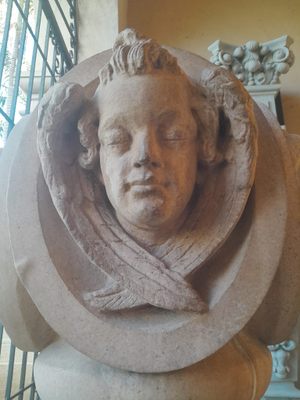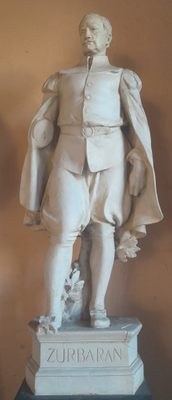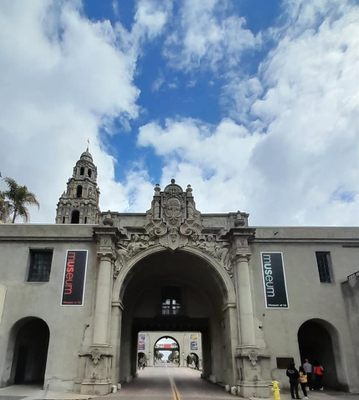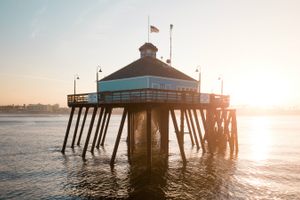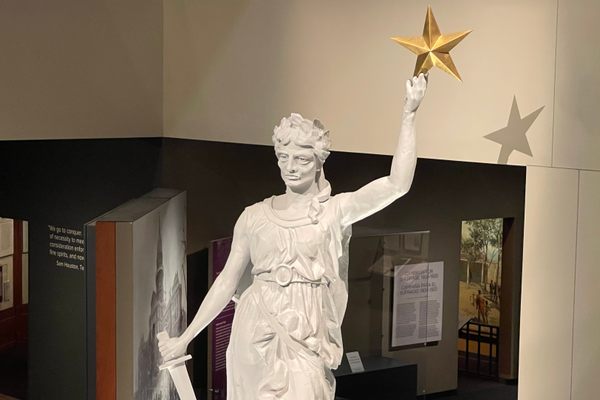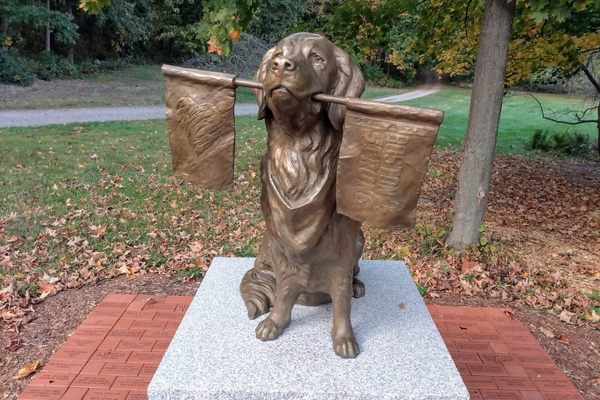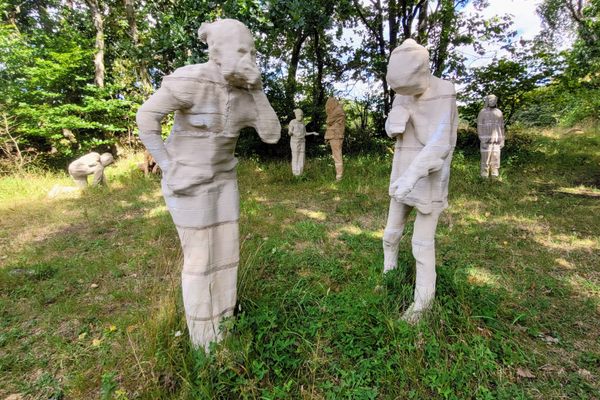About
San Diego's California-Panama Exposition was a fair that ran for two years, from 1915 to 1917, and took place in the city's Balboa Park. It was meant to celebrate the opening of the Panama Canal and advocate for San Diego to be the first U. S. port of call for ships sailing north from the inland waterway. The presentation spanned several blocks along a main boulevard, the Prado, and incorporated ten non-permanent buildings.
One of these temporary buildings was the Food and Beverage Building. The front of the makeshift building had elaborate and ornate facades made from gypsum plaster mixed with hide glue and coir fiber. Since the fair was only meant to be temporary, the building's plasterwork began to deteriorate rapidly outside.
However, with the success of the trade show, city planners decided that sturdier and more robust structures should take their place. Casts were made of the existing facades and used for the newer buildings. The original pieces were then dumped into a nearby landfill.
It didn't take long for the city's residents to abscond with bits of these discarded materials. Once their value was discovered, a committee of invested citizens salvaged what remained. Seventeen pieces were recovered and put into storage for safekeeping.
It wouldn't be until 1973 that these recovered pieces would be dusted off, restored, and then re-showcased in the newly minted Casa del Prado courtyard. Those lucky enough to locate these pieces of San Diego's history will be rewarded with sights of beauty and artistic talent.
Related Tags
Know Before You Go
The Casa del Prado courtyard is located on the Eastern edge of the El Prado boulevard, across the street from the San Diego History Center.
Open Monday through Saturday 10 AM - 6:30. Closed on Sundays
Published
May 26, 2023


